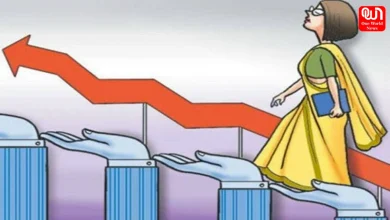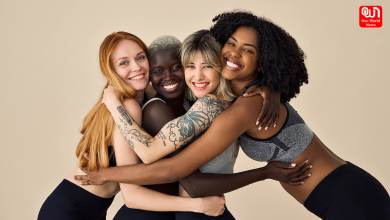If ‘why feminism’ is your question, We should All Be Feminist has your answer

Read We should All Be Feminist if you need to know why Feminism?
Talking about feminism and addressing a question like ‘why feminism?’ can be one of the most overwhelming things one could ever ask a woman to do. Chimamanda Ngozi Adichie, a Nigerian writer who has a range of writing includes fictions short stories and non-fiction has marvelously emoted herself and given all the most necessary reasons for why we should all be feminist. This book’s long essay is a text that’s a modified version of the TedTalk by the author Chimamanda Ngozi Adichie.
The book is Adichie’s personal take, moved by her personal experiences and understanding of gender, women, and feminism. The book is anecdotal yet relatable, friendly yet impactful, overwhelming yet pleasing. And of course, it answers ‘Why Feminism?’
Adichie writes in the book “I am trying to unlearn many lessons of gender I internalized while growing up. But I sometimes still feel vulnerable in the face of gender expectations.” This overwhelming statement absolutely sums the state of women or anyone who tries to take a step forward to dismantle the internalized ideas. There is a stark emphasis in the book on the process of learning, unlearning, and relearning.
Addressing Misconception around the term ‘Feminism’
At the beginning of the book, Adichie writes about the negative baggage that the word feminism is travelling with: “you hate men, you hate bras, you hate African culture, you think women should always be in charge, you don’t wear make-up, you don’t shave, you’re always angry, you don’t have a sense of humor, you don’t use deodorant” etcetera etcetera. In an absolutely relatable example, Adichie tells about how she was called a feminist with a not-so-complementing tone as if being a feminist is equal to committing a crime.
Read More: Sara’s and Mimi: Contrasting take on addressing women’s choices
Addressing inequalities in the workplaces
“If we do the same thing over and over again, it becomes normal,” she writes, stating that we see men holding the position of power all the time, we become habitual of assuming that men are the ones who should have the position of responsibility.
“The higher you go, the fewer women there are,” she writes, suggesting that women should be given the position of power and authority if we want women to grow, we need to give them the opportunity to have the position of power. “The person more qualified to lead is not the physically strong person… but the more knowledgeable, the more creative, the more innovative” There are no hormones for these attributes.
In the layers of the book, she has pointed out some important narratives on how women are told to become likable to be accepted by society and that’s why their entire idea of life ends up revolving around keeping everyone pleased. She talks about the subtle sexism in things when men are subjected to pay the bills or women are subjected to settle for less. She says, “What if both men and women are taught about not relating masculinity with money.” She talks about how women are judged on the basis of the clothes that they wear and how less feminime is a trait defining the seriousness of a woman. There are several personal and explained instances where she points out the subtle and ignored areas of gender discrimination in an absolute relatable form.
Finally, Why Feminism?
To answer why feminism, Adichie has questioned the common notion i.e. Why don’t you just state you believe in human rights or something along those lines? And answers it saying “because that won’t be the truth. Of course, feminism is a part of human rights in general – but using the broad term human rights to dismiss the specific and unique problem of gender is to ignore it.” She said it would be a method of pretending that women have not been excluded for generations. It would be a method of denying that the gender issue is mostly a female issue. That the issue was not one of being human, but rather one of being a female human. For millennia, the world separated people into two categories, then excluded and oppressed one of them. It is only right that the solution to the problem recognizes this. Feminism is viewed as a danger by some men.
The questions like why feminism or why it is supposed to be about women are in a way silencing the voices of women. Of Course, women are human beings but there are certain things and experiences that only women face because they are women. And not acknowledging those experiences just as they are will be equivalent to silencing those experiences.
In totality, We should all be feminism is a perfect book for beginners, who are looking forward to having their why(s) for feminism answered.






